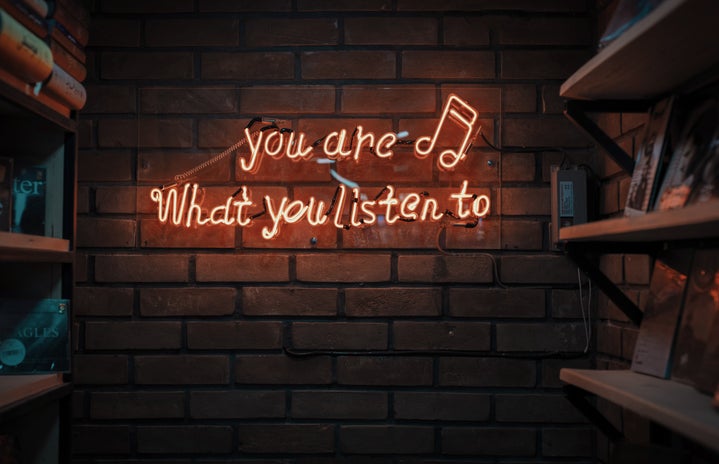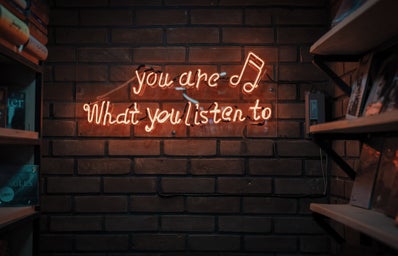At only 18-years-old, Billie Eilish made history at the Grammys this year when she took home awards for Best New Artist and Song, Record and Album of the Year. In 2013, no women had been nominated for Album of the Year. This year, women accounted for 5 of the 8 nominees. For a moment, it seemed like women in music were finally getting the recognition they deserved for their hard work and talent.
Historically, women have struggled to receive acknowledgment for their contributions to the music industry. A recent study from Forbes revealed that only ten percent of Grammy nominees between 2013 and 2019 were women. They were most represented in the Best New Artist category, but still trailing at making up only 41 percent of the nominees.
It’s not like women lack passion for creating and managing music. The ratio of students studying music is a 50/50 split between men and women. So why are only 21 percent of artists, 12 percent of songwriters, and two percent of producers women? This disparity is even more significant for women of color.
Recently, two influential women in the industry – Megan Thee Stallion and Taylor Swift – have come forward and expressed their struggles in the industry. Last year, Megan Thee Stallion’s No. 1 song “Hot Girl Summer” pushed her into the global spotlight. Since her recent collaboration with Normani on “Diamonds” and new single “B.I.T.C.H”, fans had been heavily anticipating her sophomore album Suga. However, just days before the expected release, Megan went on Instagram Live to address the legal battle she was facing with her record label, 1501 Certified Entertainment. According to Megan, her label was preventing her from releasing any new music.
The lawsuit arose after she attempted to renegotiate her recording contract, but was denied. Megan is suing the record label in hopes of terminating the original contract and receiving $1 million in damages. As per her original contract, 1501 Certified Entertainment is entitled to 60 percent of Megan’s recording incomes and also 50 percent of publishing, 30 percent of touring and 30 percent of merchandise incomes. They even have the right to the money she earns from “passive income,” or endorsements. Megan expressed that the company failed to “explain the full nature of the contact” and that she only signed because of “misrepresentations and omissions.”
Although the lawsuit is far from over, Megan obtained a restraining order and was able to release Suga on March 6. Watch her music video to the lead single, “B.I.T.C.H” here!

At the close of 2019, Taylor Swift was awarded one of the American Music Awards’ most prestigious honors: Artist of the Decade. But before she could receive the award, Taylor shared on Twitter about her ongoing struggle with her former record label, Big Machine and Scooter Braun. Scooter Braun purchased her first six studio albums for $300 million, and Taylor claims that she found out about it at the same time as the general public.
According to Taylor, she was not allowed to perform her old songs at the American Music Awards. When she took to her social media platform, she wrote, “The message being sent to me is very clear. Basically, be a good little girl and shut up. Or you’ll be punished. This is WRONG. Neither of these men had a hand in the writing of those songs.” Immediately, #IStandWithTaylor began trending as fans stood alongside Swift in solidarity. Artists like Tinashe, Halsey, Todrick Hall, Selena Gomez and Brendon Urie also spoke out in her defense.
Her newest single from Lover (the one album that Taylor has ownership of) is “The Man”, where Taylor calls out the unfair standards women face. You can watch the video of “The Man” here! Can you spot all of the Scooter Braun references?
In honor of Women’s History Month, celebrate how far women in music have come, but recognize the distance yet to go. If you consider yourself a champion of women’s empowerment, think about skipping Chris Brown, R. Kelly and Ryan Adams on your playlists. 72 percent of women musicians report to have been discriminated based on sex, and 67 percent have faced sexual harassment, more than the national average. Expand your Spotify to Aretha Franklin, Madonna, Tina Turner, Carole King, Nina Simone and others who made the industry easier – not harder – for women.
Want to see more HCFSU? Be sure to like us on Facebook and follow us on Instagram, Twitter and Pinterest!



